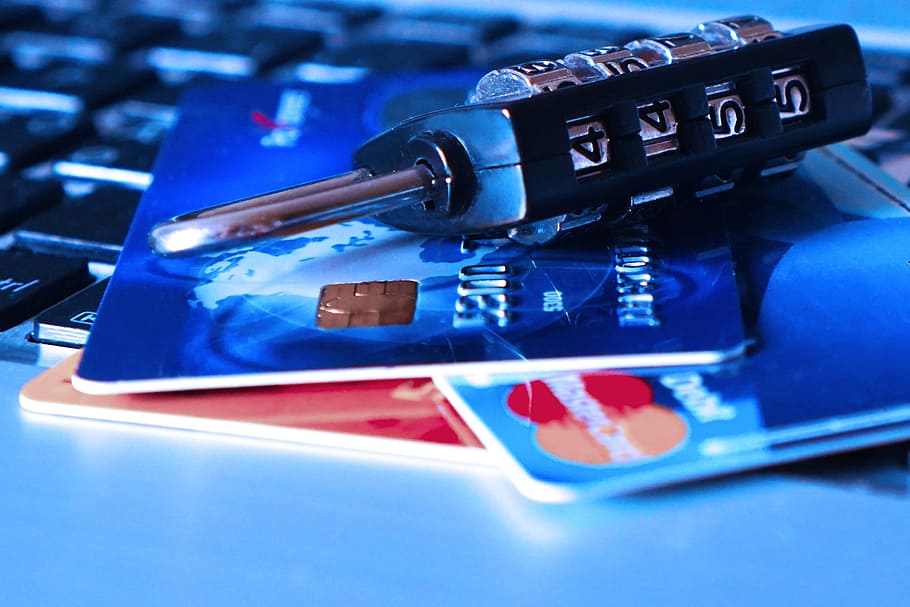If you’re a victim of fraud or scams, some or all of your lost money may be refunded by the FTC. Refunds are issued to victims in a variety of fraud and scam cases.
According to the FTC’s annual Consumer Sentinel Network report, credit card fraud is one of the fastest-growing types of identity theft. From Q1 2019 to Q1 2020, reports of credit card fraud rose by a staggering 104%. To put that spike in perspective, from 2017 to 2019, reports grew by only 27%. Credit Card Insider analyzed this report and published a study with tips to avoid trending methods of card fraud and identity theft.
Identity Theft and Credit Card Fraud Defined
Identity theft is when someone uses your personal information to open accounts or otherwise use your existing accounts to make unauthorized purchases. Identity theft covers a wide range of financial crimes, including credit card fraud, bank fraud, and other new account fraud.
Credit card fraud is a type of identity theft where someone uses your credit card number to make unauthorized purchases or, even worse, opens new credit card accounts in your name. New account fraud was the fastest growing trend in credit card fraud, with an 88% increase in reports from 2018 to the beginning of 2020. Credit card fraud can be difficult to recover from, but there are steps you can take both before and after becoming a victim to minimize the impact on your finances and credit.
How to Prevent yourself from becoming a victim in the first place?
Freeze Your Credit
There’s one simple step you can take to protect yourself from the growing trend of new account fraud: Freeze your credit.
When you apply for credit, lenders access your credit reports to evaluate your creditworthiness. If you place a security freeze on your credit reports, however, lenders won’t be able to check your credit, and most applications will therefore be denied, whether submitted by you or an identity thief.
Freezing your credit reports is free and can be done completely online, by phone, or by mail. You’ll need to place a freeze with all three credit bureaus. Having your credit reports frozen won’t affect your credit scores or how you use your credit cards. A credit freeze will, however, prevent you from applying for new credit, so you’ll need to temporarily or permanently thaw your reports before applying for new credit. This can also be done online – as long as you didn’t lose the PIN you were given when you froze your reports.
Protect Your Personal Information
Identity thieves get your sensitive information through a variety of methods, but one of the most popular is buying and selling sensitive information on the dark web. This information could be gathered through a hack or data breach at a company, or via social engineering methods such as phishing. Phishing is an attempt to gather your personal information through deception, especially by pretending to be an agency or company that you trust to be secure.

With that in mind, beware of what personal information you’re giving out. If you receive an email or phone call asking for login credentials, account numbers, or other sensitive information, be suspicious by default. These are most likely phishing attacks.
Furthermore, while online shopping is convenient, you should stick to reputable, well-known sites and avoid deals that seem too good to be true. If your credit card issuer offers the feature, use a virtual credit card number when you shop online. Virtual credit cards often have a one-time-use card number that would make it impossible for thieves to rack up more charges on your card.
Monitor Your Credit
You may already be in the habit of checking your credit and debit card statements on a regular basis. If not, now’s a good time to start. Checking your credit reports can help you catch fraud and other errors on your account in time to file a dispute before more fraud occurs or you accidentally pay the bill with the fraud charge.
It’s often possible to identify fraudulent charges without checking your reports — by monitoring your transaction history or receiving a fraud alert, for example — but it’s more difficult to detect new account fraud. If you check your credit reports regularly, however, you’re on the right track. Look to see if there are any accounts on your reports that you don’t recognize, and if you do spot something, ask about it or dispute it. If you’re certain an account is fraudulent, submit an identity theft report to the FTC and file a police report if it seems necessary. You should also look for reporting errors, such as accounts that are in good standing being reported as delinquent, or a payment marked as missed when you paid it on time.
Due to the pandemic, the three major credit bureaus (TransUnion, Equifax, Experian) are allowing free weekly online access to your credit reports until April of 2021. They can be found at AnnualCreditReport.com, the only site designated by federal law to give you your free credit reports. Even after April of 2021, you can still get one copy of your credit report from each credit bureau for free annually. By pulling one report every 4 months, you can check for new account fraud and errors without paying for credit monitoring or other services.
How to Report and Recover from Identity Theft
If you’re a victim of fraud or a scam, you may have some recourse to get your money back. Most credit card issues offer liability protection for cardholders, meaning you won’t be responsible for any amount of the charge as long as it’s disputed in a timely manner.
If your card issuer or bank doesn’t offer zero liability, federal law still has you covered. The Fair Credit Billing Act (FCBA) caps cardholder liability at $50, and you’re not responsible for any fraudulent charges if you report your card lost or stolen before it’s used. Debit cards are a bit different. Debit card fraud liability is regulated by the Electronic Funds Transfer Act (EFTA), and you could be liable for between $50 and $500, depending on how quickly you report the fraudulent charge. Of course, most banks go above and beyond and will reimburse you for the entire amount.
Keep in mind that fraud disputes don’t often get resolved immediately. If the fraudster uses your debit card, they’re spending money right out of your bank account, unlike a credit card, where they’re actually spending your issuer’s money, unless you’ve paid the bill without catching the fraud. So you may want to use a credit card whenever possible for the sake of security.
Finally, if you’re a victim of fraud or scams, some or all of your lost money may be refunded by the FTC. Refunds are issued to victims in a variety of fraud and scam cases, not just those affected by identity theft or card fraud. Common FTC recovery cases include get-rich-quick investment schemes, deceptive and unfair sales practices, products touting unfounded health benefits, and other scams and schemes. In 2019 alone, the FTC returned $232.3 million to victims.


Join the conversation!